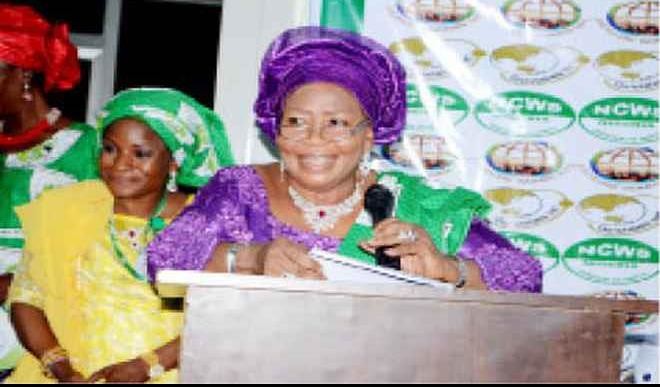For the sake of women in governance
Nigeria has witnessed a rapid decline in the participation of women in politics, which was recently mentioned by the wife of the president, Aisha Buhari. The wife of the president, speaking at a two day workshop on Nigerian Women Political Summit organised by the National Council for Women Societies (NCWS) at the M&M event centre […]


Nigeria has witnessed a rapid decline in the participation of women in politics, which was recently mentioned by the wife of the president, Aisha Buhari.
The wife of the president, speaking at a two day workshop on Nigerian Women Political Summit organised by the National Council for Women Societies (NCWS) at the M&M event centre recently noted that women have been relegated to the background in politics.
Aisha, represented by the former deputy governor of Plateau State, Dame Pauline Tallen, said, “Since 1999 there has been an alarming decline in the statistics of women in governance. Something has gone terribly wrong, and we women need to speak out and do something about it.
“We make up 50% of this country’s population and we cannot continue to be sidelined in the decision making of this country”.
Setting the tone for elaborate discussions at the workshop to secure better opportunities for women in the forthcoming elections, president of the NCWS, Dr Gloria Laraba Shoda, said most problems confronting women were as a result of bad government policy posturing over the years.
She opined that the recurring issues confronting women are not limited to poverty, unemployment, lack of access, lack of any social support system, inequality and the abysmal levels of women participation and representation in decision making in the political parties’ structures and in government.
Speaking to the theme of the event, ‘Increasing the Participation of Women in Political and Democratic Governance Process in Nigeria’, Dr Shoda said NCWS has decided to fight for the 35% percent affirmative action to help change the narratives of Nigeria’s politics.
“We will partner with parties that will also respect the 35% affirmative action in selection of candidates for the next general elections, prioritize women issues in its manifestos and implement the 35% action in its appointments when it wins the elections,” she said.
But this was not until statistics shown at the workshop revealed a rapid decline in women participation in governance in Nigeria
Rep Stella Ngwu, Chairman House of Representatives Committee on Women Affairs and Social Development, who represented the Speaker, said: “In the House of Representatives of the National Assembly, there are only 22 women out of the 360 members which is not too impressive. The percentage of women in the Senate is also quite low.”
Meanwhile, agitation for more involvement of women in politics has reached a new high with women under the platform of Nigerian Women for Peace (NGWomen4Peace) demanding for their rightful positions when it comes to decision making.
Mrs Lesley Agams of Alliance for Africa said at a press briefing recently that women were tired of being sidelined when important decisions were being taken.
The women called for the immediate implementation of Chapter 2 Fundamental Objectives and Directive Principles of State Policy of the constitution of the Federal Republic of Nigeria, especially Section 14(3) and (4) on federal character to immediately implement representative inclusion of women in all federal, state and local government agencies and a 50% affirmative action policy.
Dr Priscilla Achakpa, Executive Director of Women Environment Programmes Africa, also a part of the coalition, said it was quite unfair that women are not given the opportunity to help shape the history of Nigeria especially as the country can boast of capable hands among them.
The group, which promised to begin series of campaign for peace and inclusion of women in decision making, called on the newly formed House of Representatives committee saddled with the responsibility of fostering national unity led by the Deputy Speaker, Yusuf Sulaiman Lasun, to appoint a female representative as its deputy and that of the nine other positions at least half should be filled by women.
“The project steering committee for the implementation of the 54.5 million euros support project for the north-east inaugurated in August should have at least 50% female membership, and ministries that are on the committee must nominate women to fill their position,” it said.
Earlier, Mrs Anne Addeh, the Executive Director of Women and Youths Environmental Safety and Empowerment Organisation, said Nigeria can boast of capable and committed women who are competent to handle leadership positions.
In a communiqué, the Nigerian women leaders demanded that henceforth political parties must reserve the positions of vice president, deputy governor of states and vice chairmen of local government areas for women in future elections.
The communiqué issued after a two-day workshop during the Nigerian Women Political Summit organised by the National Council for Women Societies, also stated that they would only support political parties that accept their demands.
The communiqué was signed by Dr David Okoror on behalf of president of the NCWS, Mrs Shoda.
